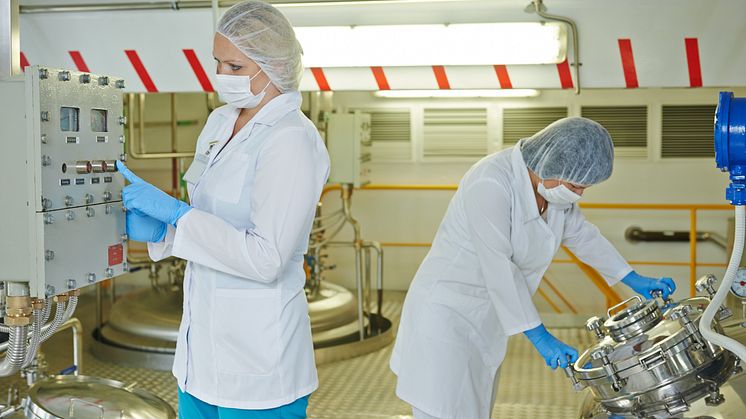Restructuring: Announced losses, gains and impacts on those who remain
This graph, taken from the latest European Restructuring Monitor (ERM) report, shows the announced job losses and gains since 2008.

This graph, taken from the latest European Restructuring Monitor (ERM) report, shows the announced job losses and gains since 2008.

Platform work is neither good nor bad – it just is. We need to adapt to this reality by finding ways to capitalise on the positive while at the same time counteracting the negative. This needs to be done in a differentiated way, taking account of the great variety in platform work. One-size solutions simply will not fit all.

On 8 November 2018 from 14:00 to 16:00 CET, Eurofound will host the webinar ‘Making the platform economy work well for workers’. This two-hour webinar will go beyond the debate about the challenges inherent in this new form of employment and focus on possible solutions to tackle the work and employment-related implications of platform work.

Apprenticeships are long established in manufacturing and are attractive for both employers and young people because of the balance between theoretical and practical education that they offer. However, in several countries in Europe and beyond, apprenticeships are lagging behind changes in manufacturing.
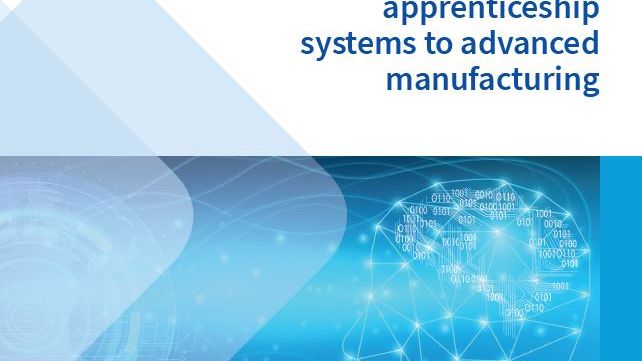
Restructuring is a common feature of labour markets and work organisation. While much research in this area primarily concentrates on the implications for those that lose their jobs, the latest report on restructuring from Eurofound focuses on the impacts for those that remain in an organisation.
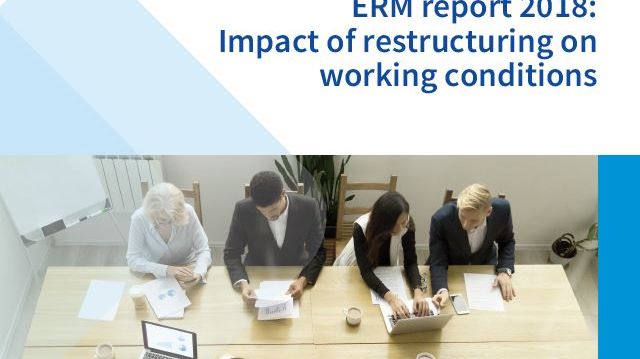
2017 was a good year for the majority of EU Member States in terms of recovery of employment. However, while the EU28 as a whole is now exceeding its pre-crisis employment rate, in 2017 it was still 2.8 percentage points short of its 2020 target of an overall employment rate of 75%. In addition, several Member States' employment rates continue to lag behind those witnessed a decade ago.

Today is World Mental Health Day, a yearly event held by the World Health Organization with the overall objective of raising awareness of mental health issues and mobilising efforts in support of mental health. Eurofound has made a limited number of copies of its latest report on Burnout in the workplace available to order, free of charge, via its website

Management is still mostly a man's game. The limited presence of women in management roles in European workplaces, despite years of gender equality policy, illustrates the magnitude of the challenge in achieving gender equality at work and highlights the need for more concerted effort and comprehensive long-term strategies to drive change.
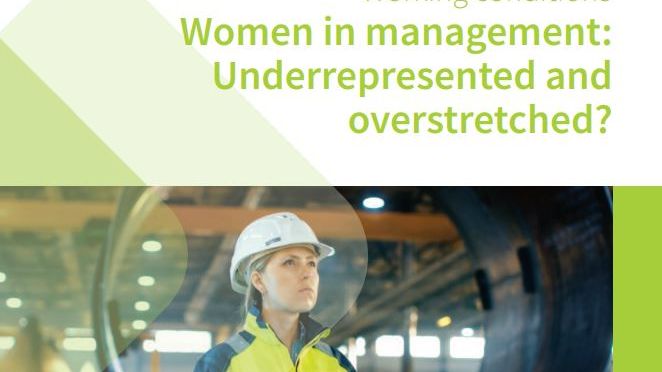
Today is European Day of Languages, a yearly event that celebrates the linguistic diversity of a continent with over 200 European languages, 24 official EU languages, around 60 regional or minority languages, and many more spoken by people from other parts of the world.
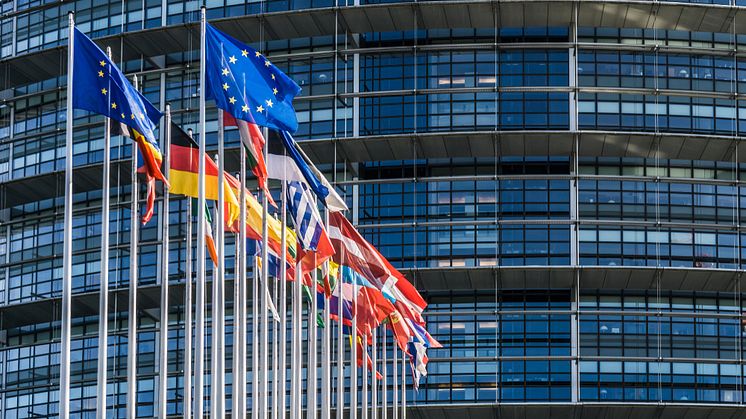
Platform work is still small in scale in Europe, but it is rapidly growing and becoming increasingly important for the digital economy. Much needs to be done, not just to track and adapt to its development, but also to ensure that we have a common definition of what platform work is and how it impacts the broader world of work.
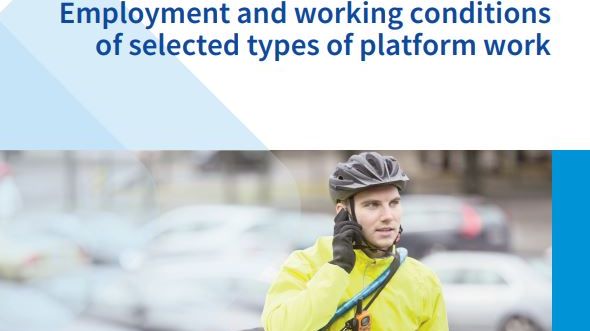
The effects of burnout on workers can be severe; without detection and proper treatment burnout symptoms can last several years – impacting not just the health of individual workers, but also business success and broader economic performance. However, a lack of clear definition and understanding of burnout has resulted in a disparate and fragmented policy response at national level.
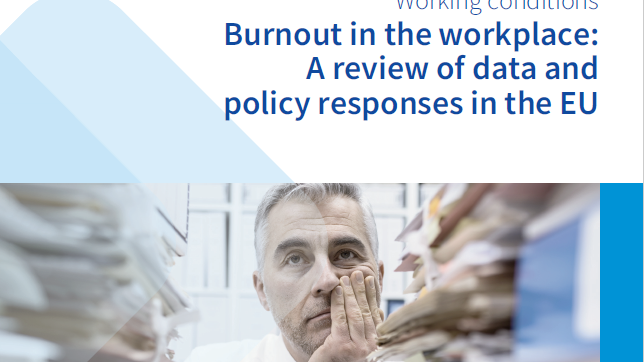
The importance of physical tasks in manufacturing is generally declining due to automation; with more intensive use of digitally controlled equipment, and the increasing importance of quality standards, resulting in a growing amount of intellectual tasks for manual industrial workers.
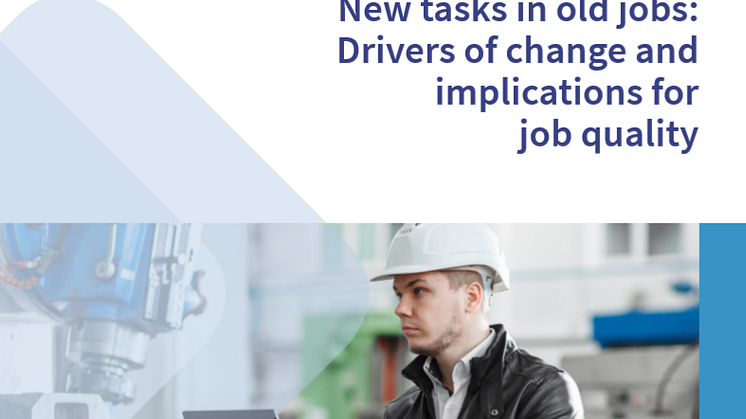
Eurofound's forthcoming policy brief focuses on women who have overcome the barriers and advanced into management. It aims to assess whether women, once they have reached a managerial role, continue to encounter obstacles that their male counterparts do not face.

In September Eurofound will release a new report on Burnout in Europe, examining what causes burnout, the effects of burnout, and mapping where in Europe it is considered an occupational disease.

Smartphones and mobile technologies are increasingly important in our everyday lives; by expanding opportunities to telework, have they also transformed the world of work?
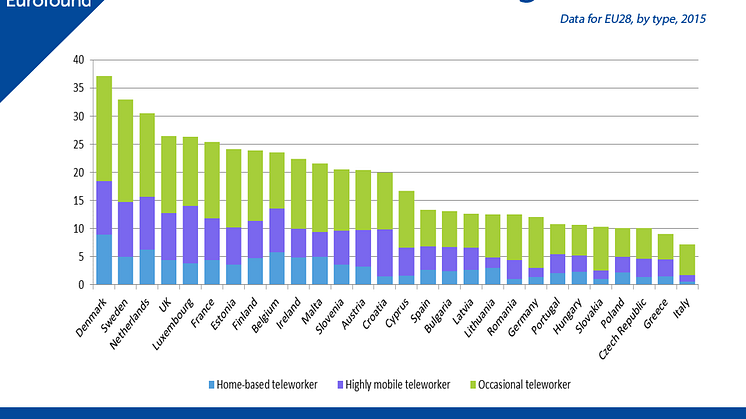
@JuanMenendezEF presents #eurofound latest research findings on #platform #work and employment conditions at the informal #EPSCO #eu2018at today 19 July 2018
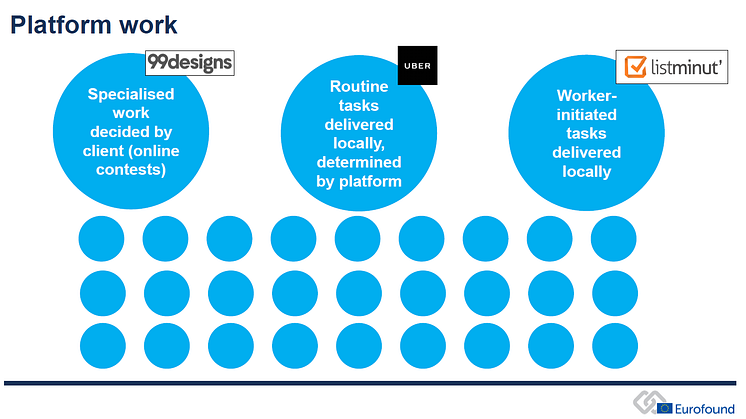
It is well known that women take more responsibility for the care of their children than men. According to the 2016 EQLS, 88% of mothers compared to 64% of fathers in the EU care for their children every day. These fathers estimate they give 21 hours a week to the care of their children, while the mothers dedicate 39 hours per week.
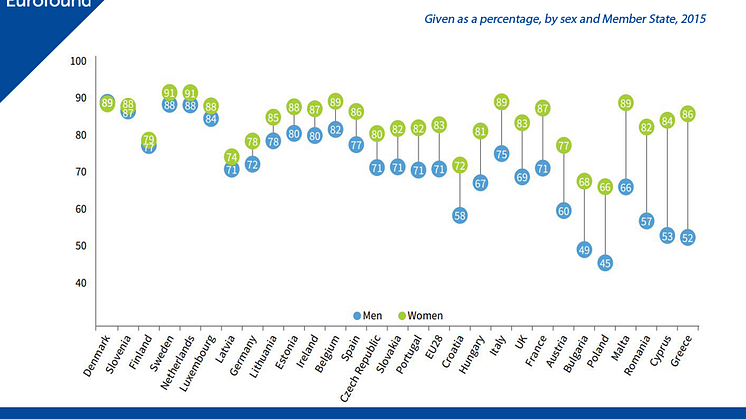
Companies that encourage their employees to participate in broad decision-making around operations or strategic direction can not only improve job satisfaction, but also increase levels of innovation.
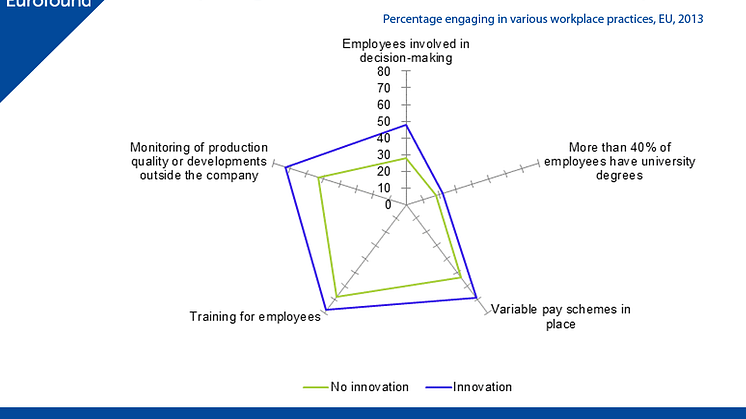
Employment is at its highest level ever in the EU, and the employment recovery is now well-established in Europe. But is it being felt in all countries?
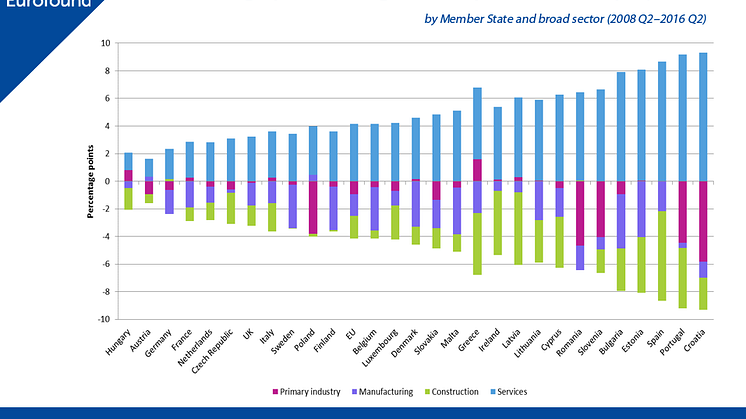
Companies are constantly competing for the next big thing in innovation – the next-generation 3D phone, the quantum computer, the virtual doctor. They fixate on technological breakthroughs and look for new business models. But innovation also needs systems, an organisational structure and people who work together.
